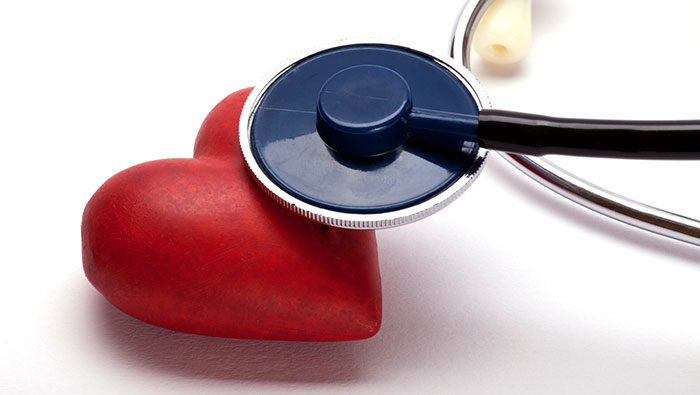
Post-Heart Attack Lifestyle Changes
Posted by Editor on Mar 22nd, 2017 in Secure in Health | 0 commentsSurviving a heart attack is often seen as a life-changing event. Apart from recovering from the procedures that were performed to treat the heart attack, health experts in Singapore suggest that patients also need to make some extensive changes in their lifestyle. These changes are designed to target the risk factors of heart disease and stop its progression. Although implementing the following lifestyle changes will never be easy, doing so after suffering from a heart attack is a crucial part in preventing its recurrence.

1. Quit Smoking
If you used to smoke, then the most important thing that you can do – not just for your heart but for your whole system – is to stop. Smoking increase the amount of fatty material stored in your arteries. In addition, the nicotine found in cigarettes makes the heart work faster. It constricts the blood vessels and increases your blood pressure and heart rate. Also, being exposed to second-hand smoke is detrimental to your health. So ensure that you avoid being exposed to cigarette smoke at any cost.
Quitting smoking is one of the most difficult changes that you will make, but your Singapore cardiologist will help you in the process. Ask him or her about a plan or some guidance as you give up smoking. Also, inquire whether he or she knows a support group that can help you in getting over this vice. Remember that because you failed to quit smoking before doesn’t mean that you can’t quit now for good.
2. Go on a Heart-Healthy Diet
Going on a heart-healthy diet is another important lifestyle change that you should make after experiencing a heart attack. A diet that’s low in cholesterol and is rich in fruits, vegetables and whole grains will help in lowering blood pressure, cholesterol levels and body weight. Health experts in Singapore also recommend incorporating fishes that are rich in omega-3 fatty acids in your diet twice a week, as well as consulting your specialist about taking some omega-3 supplements.
Succeeding in this lifestyle change will be easier if you work with a dietitian. Together with a great cardiologist in Singapore they will be able to help you in planning your daily menus and finding recipes that best suits your condition and heart health. Your dietitian will also be able to provide you with resources that will allow you to focus on eating healthy foods. If you’re having problems looking for a dietitian for your rehab program, ask your cardiologist in Singapore for a referral.

3. Exercise Regularly
One of the most important factors to achieve a good heart health is to be physically active. Some patients are afraid of exercising after a heart attack, but working out is what you really need to strengthen your heart and reduce your risk of experiencing future heart attacks and heart disease. So as much as possible, take part in a cardiac rehabilitation program to help you establish an effective life-long workout plan.
If you don’t feel like going for a rehab, make sure to ask your Singapore cardiologist about what level of exercise is best for you and how you could possibly incorporate more activities in your daily routine. Also, ask your doctor about what warning signs to watch out for as you exercise, as well as what you should do when they occur.
4. Manage Obesity and Diabetes
Obesity and diabetes are some of the major risk factors for heart attack and heart disease. If you’re diagnosed with diabetes, it’s important that you work with your healthcare provider to have a tight control over your blood sugar. This is achievable through eating healthy diet, exercising and taking certain medications. Make sure that you work with your practitioner to develop an effective management plan for your diabetes.
Being obese is a major factor for developing diabetes and heart disease. Your specialist can help you create a plan to control the number of calories you consume, while increasing your physical activity to burn the extra calories. Have your cardiologist refer you to a registered dietitian or fitness expert to help you lose weight.
5. Treat High Cholesterol and High Blood Pressure Levels
High cholesterol and high blood pressure damage your arteries. Over time, it increases your risk of experiencing heart attack and stroke. Going a healthy diet, exercising and doing the aforementioned lifestyle changes can help, but it might not be enough in the long run. That said, ask your doctor about certain medications that you can take to manage or treat high blood pressure and high cholesterol.
6. Take Medications as Recommended
If your specialist has prescribed some medications for your heart condition, take them exactly as advised and report any side effects to your doctor. Also, don’t skip or stop taking any of your medicines without consulting your physician first.

7. Monitor Yourself for Signs of Depression
Experiencing mood changes, such as depression, is common in the first few months following your heart attack. However, it might be a problem as it can undermine your recovery and put you at risk for cardiovascular complications or worse, death. Feelings of hopelessness, sadness and loss of interest in activities you used to like that stay with you for two weeks should already prompt a call to your cardiologist in Singapore. Ask him or her about the treatment options available like counselling or medications that you can do to battle depression.
Experiencing a heart attack isn’t a sign that you should back away from doing the things that you love to do. It’s a sign that you should now make your health your top priority, and you can start doing that by applying the aforementioned changes into your life now.
